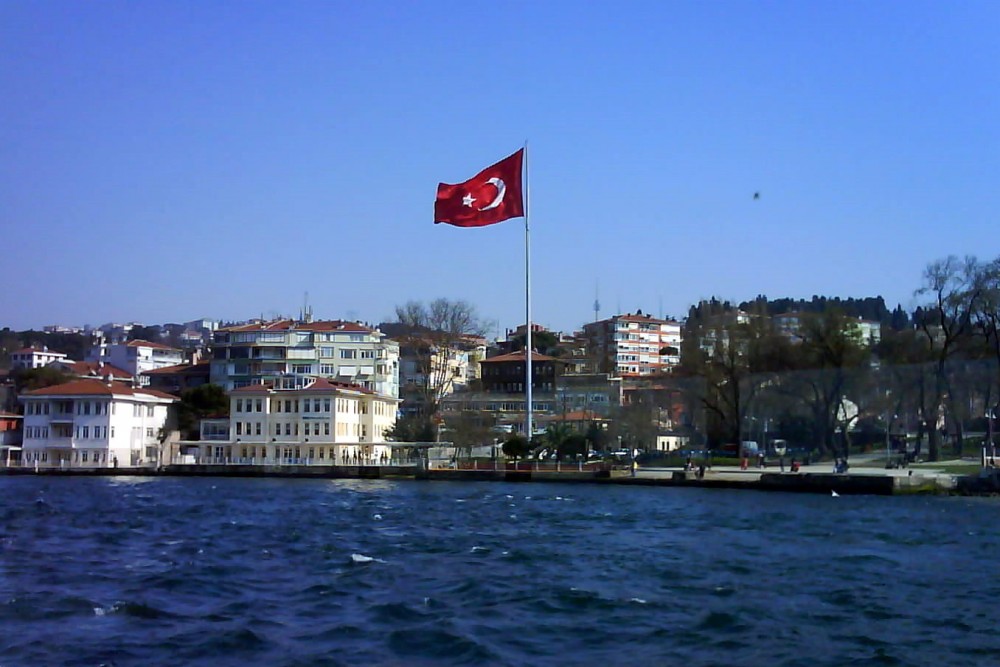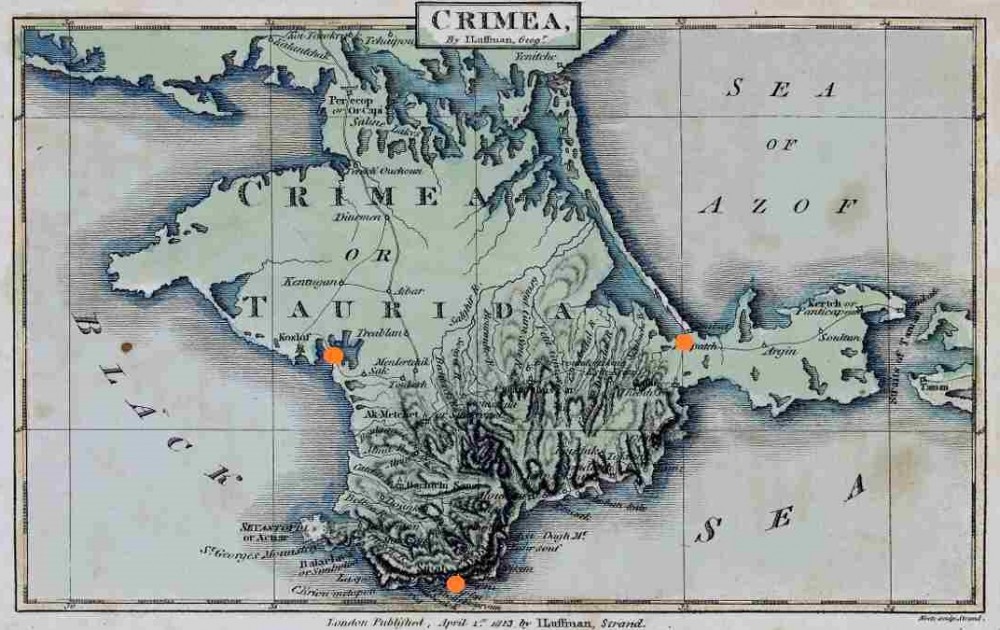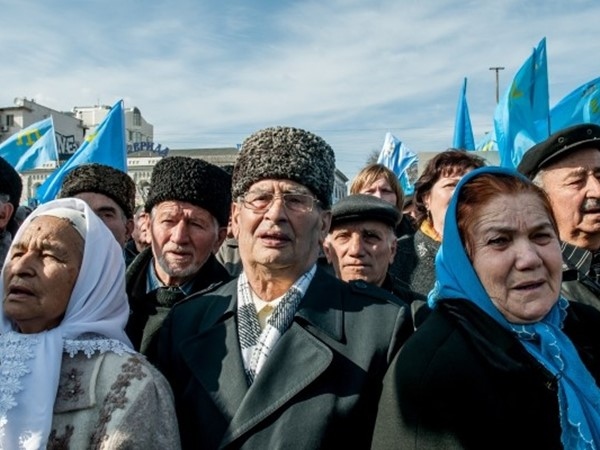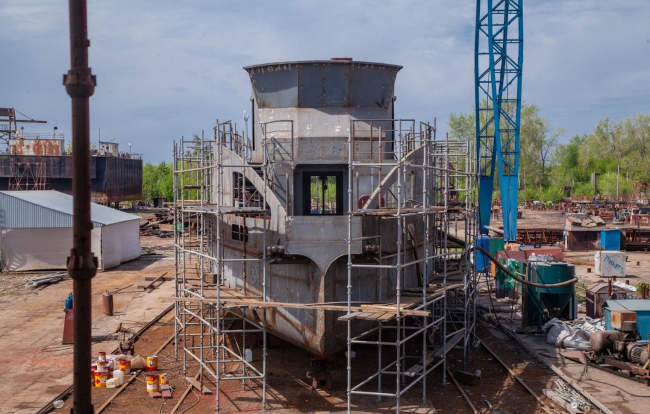The reason for Russia’s accusations was a shootout that occurred near Armiansk (northern Crimea) on the night of August 6-7, 2016. The Russian Federal Security Service (FSB) announced that it had thwarted several attempts by a terrorist group to commit sabotage and break through to Crimea from Ukrainian territory, leading to the deaths of a Russian serviceman and an FSB officer.
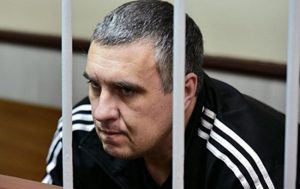
According to the FSB, the sabotage group had been “trained and prepared by the Main Intelligence Directorate of the Ministry of Defense of Ukraine”. Russian security officials argued that the detained Ukrainian “saboteurs” had targeted “Crimea’s critical infrastructure sectors”, whose destruction would have a debilitating effect on the economy and security of the peninsula.
Russian authorities arrested two Ukrainian nationals - Yevhen Panov and Andriy Zakhtey - accusing them of being partners in a “saboteur group” and plotting a series of attacks on the peninsula.
Panov was sentenced to eight years in a maximum-security penal colony. Zakhtey, who made a plea deal, was tried and sentenced to six and a half years in prison.
On August 11, 2016, we reported that Russian officials working in Crimea, namely, Eduard Zhuravlev, adviser to former Sevastopol governor Sergei Meniaylo, publicly admitted on his FB page that inebriated Russian servicemen had staged a shootout near Armiansk, close to the administrative border with Kherson Oblast, Ukraine. The post was subsequently removed.
Zhuravlev shows an interesting document – a photocopy of the “Wanted Bulletin” dated August 7, 2016 sent to the heads of the territorial departments of the Ministry of Internal Affairs in Crimea. It states that the police are searching for five men in camouflage, decorated with chevrons depicting the Russian flag, who are wanted for committing a heinous crime near Armiansk.
“However, I have this intuitive feeling about the events near Armiansk and I agree with the version that Russian servicemen, who had probably had way too much to drink, shot their comrades and then went AWOL…” wrote Meniaylo.
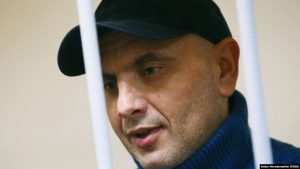
At that time, many Ukrainian and international analysts expressed the opinion that the Kremlin was “testing the waters” with this provocation. If the international community believed that Ukraine was truly a “terrorist state”, it would allow Russian President Vladimir Putin to launch a new invasion on the mainland under the pretext of “combating terrorism”. Soviet-era dissident and journalist Viktor Davydov noted that in August 2016 several divisions of Russia’s Baltic fleet were transferred to Shyrokyne, eastern Ukraine, while the Sevastopol fleet was ordered to keep an eye on Odesa territories.
Another Russian dissident, investigation journalist Yuriy Izotov also confirmed that fake “evidence about a Ukrainian sabotage group” and any positive reaction and/or follow-up by the international community could have become a pretext for intensifying Russia’s aggression in Ukraine.
“Here’s what happened during a military operation in Crimea after the shootout near Armiansk. I got a letter from a friend in Pskov, who reported that many military divisions were being relocated. In particular, he wrote that, in the two weeks preceding the incident, he had seen much more military activity in the 76th Air Assault Division, as well as more soldiers and military equipment arriving at the training grounds. I’d like to quote him directly – “Lots of military vehicles are being brought in from all over the region; I often see them on the roads. And most importantly, the men escorting this military hardware walk through the city with machine guns ready to fire! The last time I saw something like this was in 1993. I believe that the conflict will escalate. They’ve been preparing this for quite some time.”
Yuriy Izotov draws attention our attention to the fact that this information was received on August 11, 2016. Since we are talking about the last two weeks before August 11, 2016, it is obvious that preparations for an invasion of Ukraine had started almost ten days before the actual shootout near Armiansk. When Izotov first publicized this information, he started receiving anonymous threats and calls. When he began exposing the activities of the Sverdlovsk Regional Fund for the Disabled and Veterans of the Special Forces, which was actively recruiting men for war in the Donbas, he was verbally attacked by Maksim Mitchin, deputy chairman of the Fund. After that, Izotov was forced to leave Russia.
Yuriy Izotov divulged another piece of important information. Working as a volunteer in the territories liberated by the Ukrainian army, he managed to interview several persons who had witnessed the start of the war in 2014.
“Two brothers from Sievierodonetsk, who worked as volunteers with us, told us how the war had been prepared back in February-March 2014, and admitted that at first they even participated in these events. At that time, FSB officers gathered active young people in the cities of eastern Ukraine and trained them for urban warfare and how to seize buildings. The FSB brought local criminals into the ranks of the “republics”, and they were the ones that worked up the crowds at public rallies. According to the brothers, an ex-FSB officer personally sought out such criminal elements and introduced them to the locals. Both Russian security officers and professional soldiers, who had participated in the invasion of Crimea, were part of the training team.”
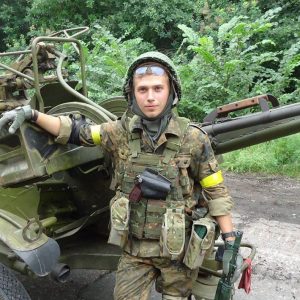
After moving to Ukraine, Yuriy Izotov had the opportunity to learn more details about the crimes committed by Russian soldiers. He managed to interview Valeriy Marinets and Maksym Avramenko, volunteers of the Donbas Battalion, who were captured near Ilovaisk. They both concurred that they were seized by regular units of the Russian army, which then transferred them to pro-Russian militants, probably for money.
“They told me about torture, beatings and mock executions. In addition, both men witnessed clashes that took place between different armed units of the occupation forces. When some men dared to rise up against the ruling party, they were promptly taken out and shot. The Ukrainian prisoners were in touch with regular Russian soldiers, who readily admitted: “Sorry, guys, we understand perfectly well that we’re occupying your country, but we were forced to fight. If we don’t, we’re labeled as deserters. It’s an order.” They told us that many of their dead were not given a decent burial and it was even forbidden to transport their bodies to Russia. Families of Russian soldiers, whose bodies had been taken back home, received some compensation, while those KIA, which were left unburied somewhere in the Donbas, were officially listed as “missing” or “deserters”. Their relatives didn’t receive any compensation.”
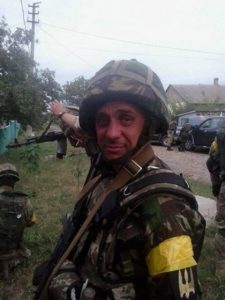
Yuriy Izotov hopes that his testimony will be added as evidence to the list of war crimes committed by the Russian Federation in the Donbas and in Crimea, and most importantly, as proof of the participation of regular Russian troops in the invasion and occupation of these Ukrainian territories.
In August 2016, the FSB announced the arrest of a group of “Ukrainian saboteurs” who had allegedly prepared terrorist acts in Crimea. For some time, Yevhen Panov and Andriy Zakhtey were held in Lefortovo prison in Moscow, and were then transferred to Crimea.
In July 2018, the Russia-controlled Supreme Court of Crimea sentenced Panov to 8 years in a maximum-security penal colony. He refused to cooperate with the investigation and did not admit his guilt in the course of the trial. Zakhtey signed a pre-trial agreement with the investigation committee; he was sentenced to 6 years and 6 months in a maximum-security penal colony and a fine of 220,000 rubles (about $1,700 US).
The Ukrainian authorities deny the Russian accusations and call them provocations instigated by the Russian special service.


